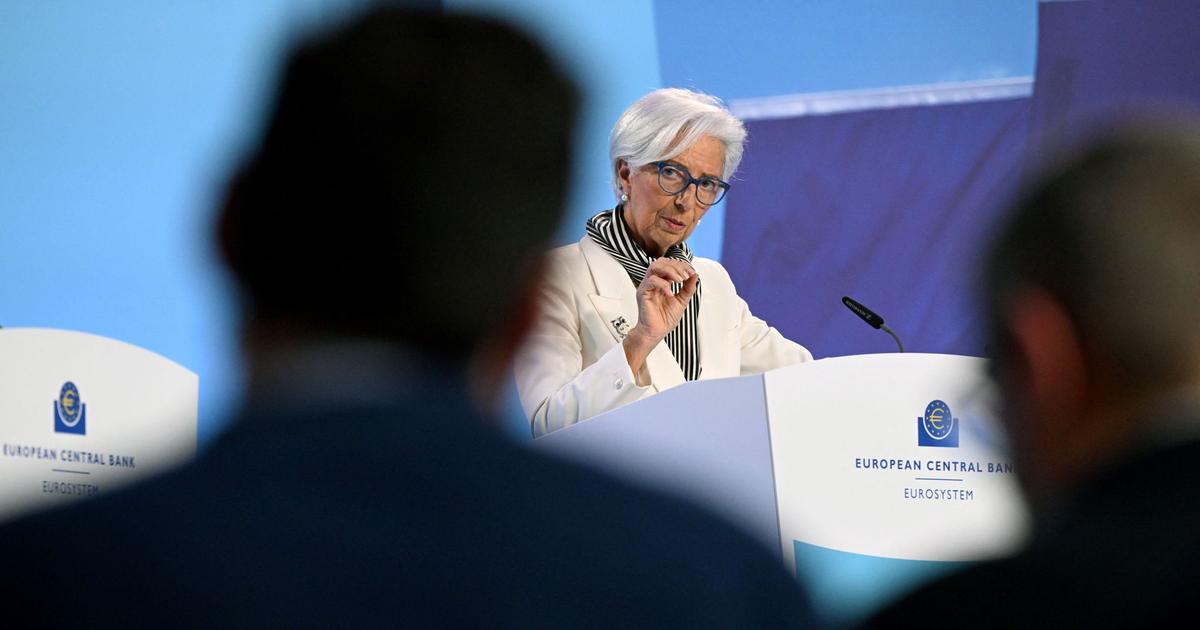This is a first in two decades: the European Central Bank (ECB) suffered a loss of 1.3 billion euros last year, a consequence of its anti-inflation monetary policy.
Its last deficit (of 1.6 billion), recorded in 2004, was then due to exchange rate effects linked to the appreciation of the euro.
The bill, caused this time by the sudden rise in interest rates, could have been even steeper.
The ECB specifies in a press release that the result for the year 2023 would have been negative by 7.9 billion euros without the drying up of the provision for risks, to the tune of 6.6 billion euros.
Thanks to this financial cushion, the Frankfurt institution was still able to post a balanced result in 2022.
Further losses are still expected
The turnaround, after
“nearly two decades of substantial profits”, “reflects the role and necessity”
of the action of the ECB and national central banks to fight inflation, the press release specifies.
The deposit rate actually increased from -0.5% to 4% between July 2022 and September 2023. The higher rates have
“led to an increase in interest charges”
paid to euro zone central banks, which resulted in a bill of 14 billion euros last year, compared to 2 billion in 2022.
At the same time, the interest received on the mass of bonds accumulated by the ECB during the years of fighting the crisis has not followed.
This jaws effect means that the ECB should
“suffer losses over the coming years”,
warns the institution.
Specifying that the loss will have no impact on the ability to conduct an
“effective monetary policy”.

